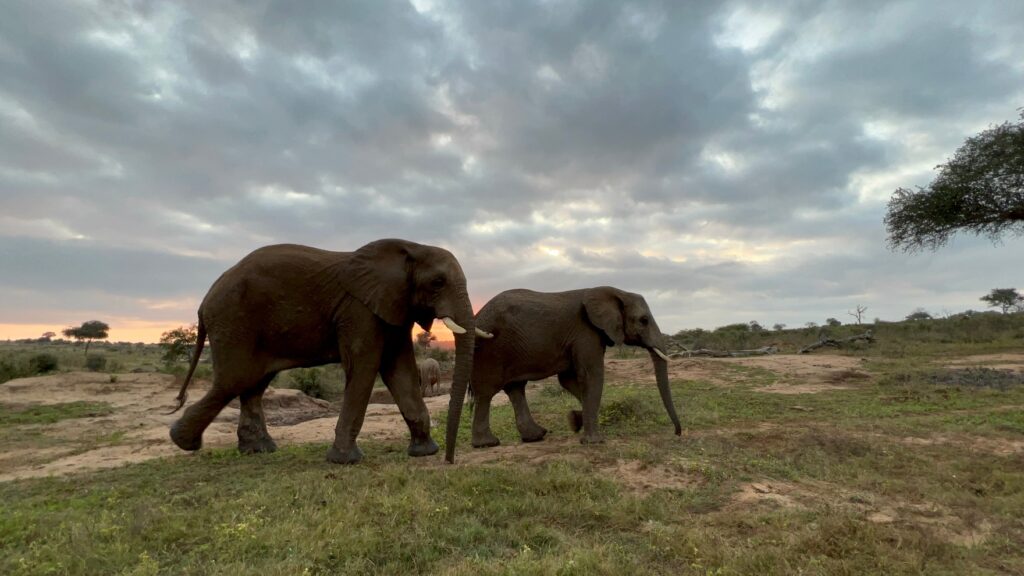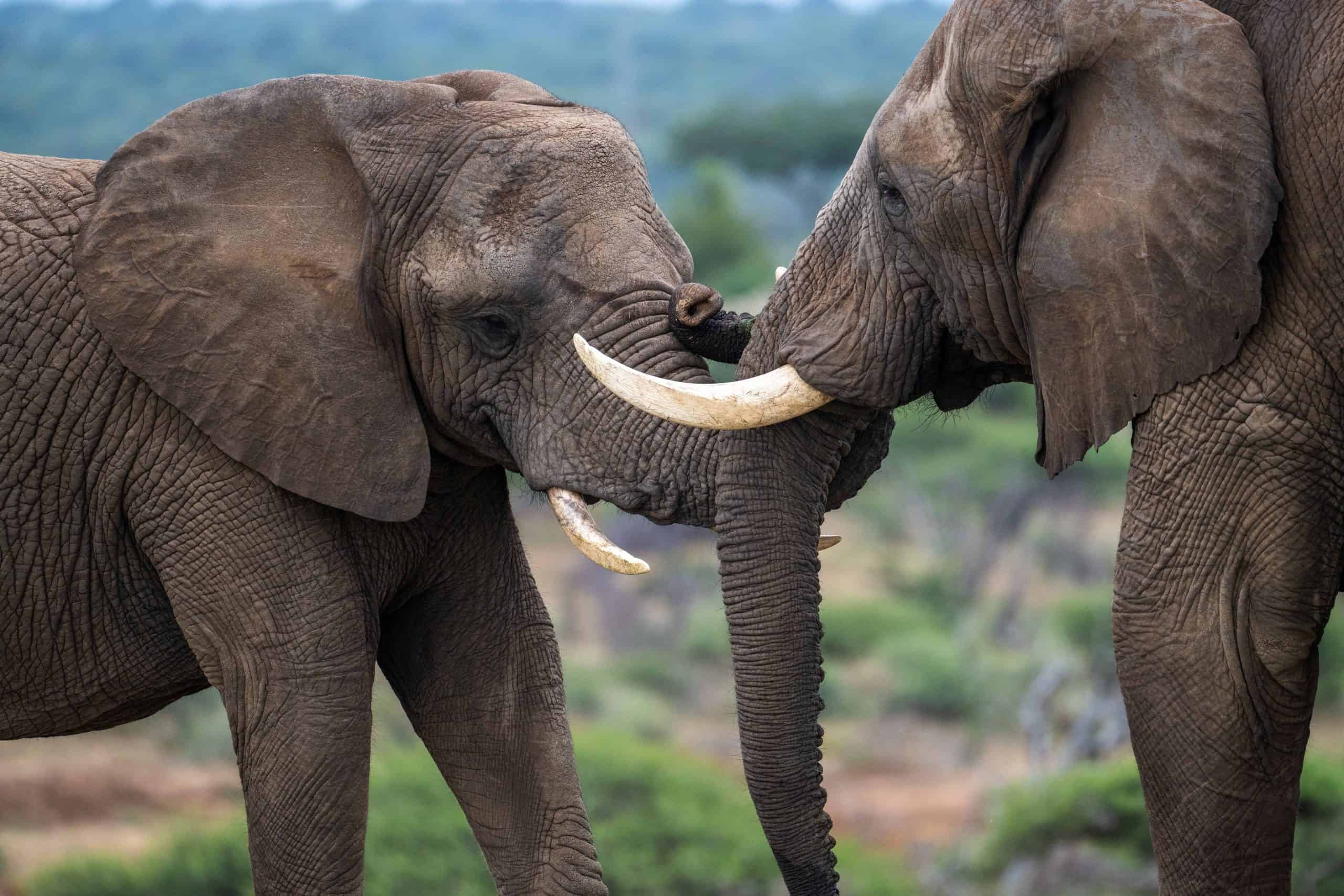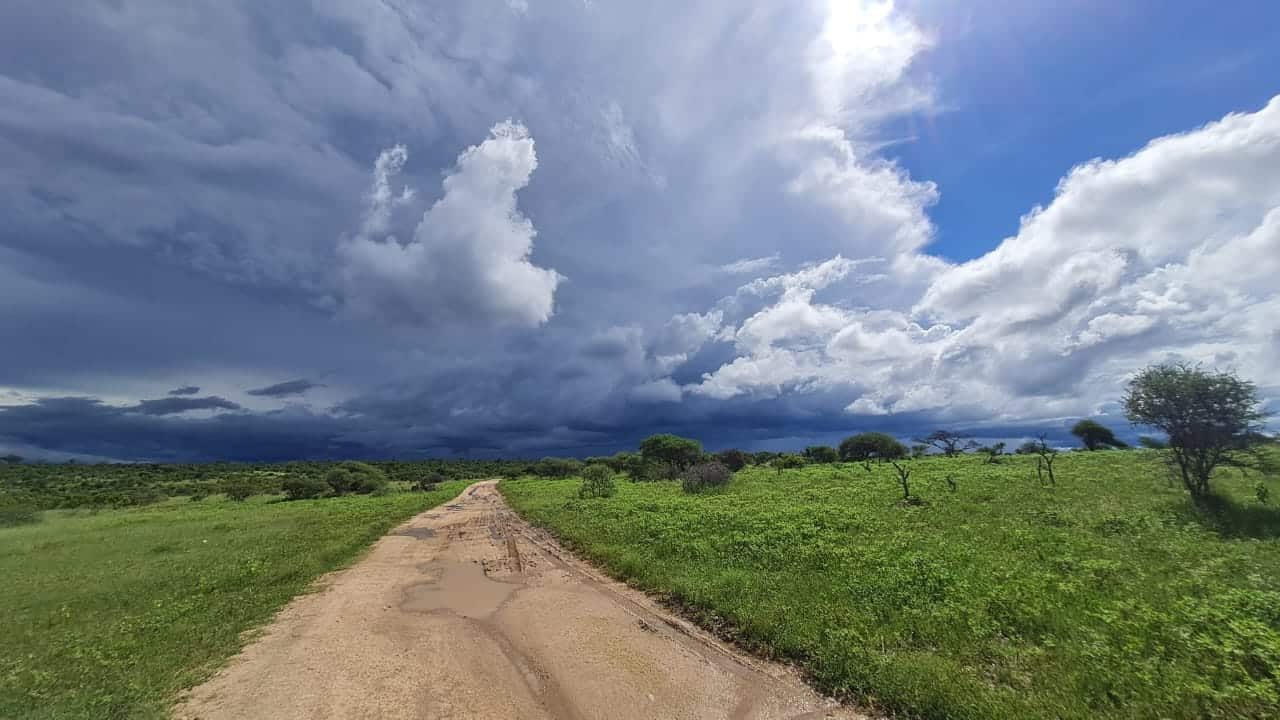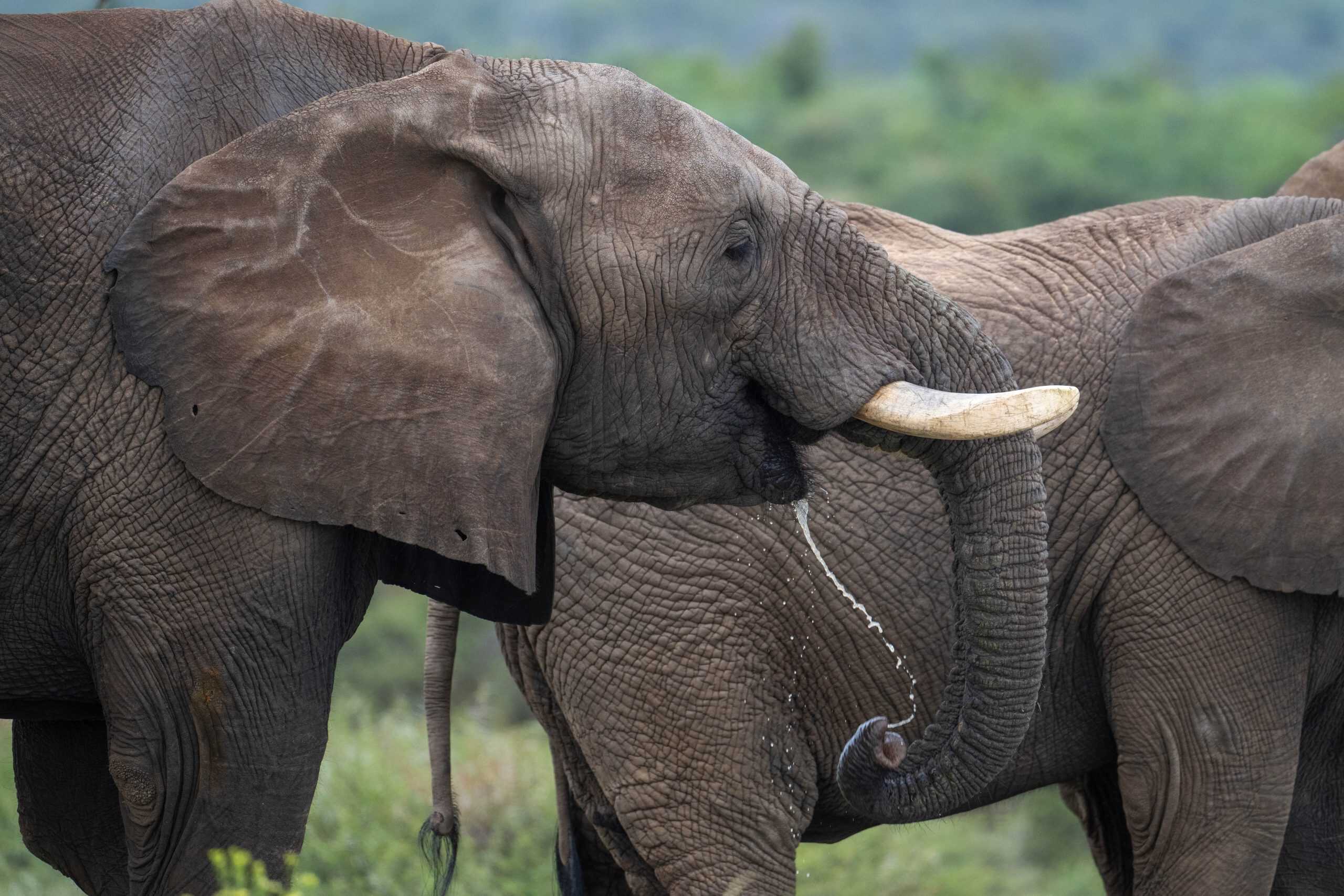Is Fishan the Father of the Elephant Herd?
What does it mean to be a father? That’s the real question we’re asking. And of course, we’re asking in human terms, because being a father in the elephant world means simply to have sired a child. It’s a matter of biology, a short and fleeting moment in time that has a far greater meaning for the female, the mother-to-be. But our herd is very different to wild herds. They are mostly orphans, united in a blended family, with bulls of an older age living alongside females, their offspring, and new orphans accepted into the herd. The older bulls, like Sebakwe, Somopane, Fishan and Jabulani, take on new roles in this way. They are re-writing the story of elephants, you could say. Their path has led them from being displaced at a young age, to forming a herd again, and as such they perhaps have a deeper understanding of the need to accept others, to welcome those in need.
Fishan was certainly like this with Timisa. Timisa was rescued as an orphan in 2015 at about one and half years of age. She was old enough and healthy enough, we felt, to be immediately introduced to the Jabulani herd. And what a welcoming she received! There was plenty of trumpeting and excitement and she was quickly embraced by Tokwe and Fishan. Fishan would have been around 26 years old when his bond with Timisa started, relatively young considering African elephants in the wild live to be around 60-70 years of age. At 34 years of age now, he has a huge stature, at over four tonnes in weight, towering over many of the other herd members, and an “old soul” nature. There has always been a maturity in Fishan that surpasses his years.
He may not be the dominant bull, at third position in the hierarchy among the bulls. He may not be the strongest physically. But he makes up for this in his character and behaviour, his confidence at standing his ground, standing up for himself and for others he cares about. Fishan was castrated due to an infection at an early age, before he was rescued from Zimbabwe and brought into our care. He cannot sire offspring. But what is it really that makes a father? We believe, in human terms, it’s about showing up for your family. Being there to help, guide and protect. To offer company on the journey through life. Fishan spends a lot of his time with the younger elephants in the herd. He shares his paddock in the homestead with the young ones, and Tokwe, but can also often be seen choosing to be beside the young females in the bush, when feeding or walking. He likes their company and they like his.
He certainly is a very different character to Sebakwe or Jabulani, even before his accident in 2018 when he fractured his leg. He has always been a more sensitive soul. His presence in the herd is beautiful to watch, as he moves alongside the much smaller elephants at his feet or while Timisa shimmies under his bulky trunk. Khanyisa also finds comfort from being close to Fishan and can often be found trailing after or around him on their walks in the wilderness.
Tell us who you think is the father of the herd. Tell us what fatherhood means to you.









tamlin-herd
How lovely to read your message, thank you for sharing your perspective on fatherhood in the herd!
Anna Gotthardt
I consider Fishan as the Father, though it's not his favorite thing to do, he'll share his food with the little ones, stand with the little ones and the ladies during inclement weathet, always come as fast as he can when help is called out for. Sebakwe is the head bull and expected to protect the heard. Jabulani is next I believe and although he does like to look out for the ladies and littles, he also likes to play a hand at mounting them when he gets the opportunity, particularly Pisa and Timisa. Mambo and Zindoga and still youngsters and more interested in challenging others at this point in their life than acting like a father. There are a few other bulls, but I feel comfortable in saying Fishan is the Father of the Jabulani herd.